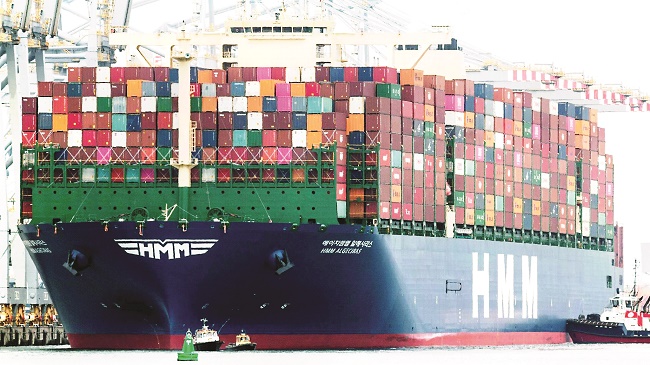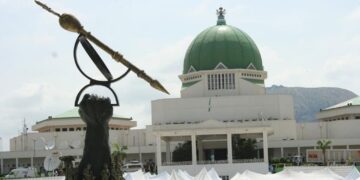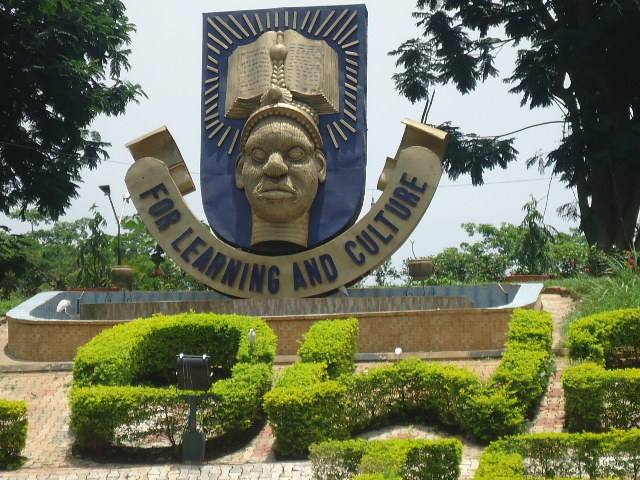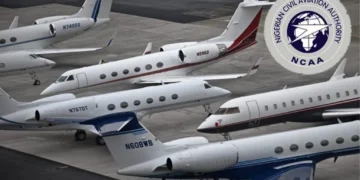[ad_1]
The immediate past Executive Secretary of the Nigeran Shippers Council (NSC), Barrister Hassan Bello has said that some State Governments should be blamed for the under-performing level of many of the Inland Container Depots (ICD) otherwise referred to as dry ports scattered across the country.
Recall that the Federal Government in 2017 approved six ICDs (one in each of the country’s geo-political zones), namely Erunmu, Ibadan for the Southwest; Isi -Ala Ngwa, Abia, in the Southeast; Funtua, Katshina; Zawachiki, Kano for the Northwest; Heipang, Jos, for Northcentral and Jauri, Maiduguri for the Northeast.
Five years after that approval, many of the ICD’s remain un-used and under-utilised even as the Federal Government is putting more emphasis on exportation of non-oil cargoes with the establishment of five Export Processing Terminals (EPT) by the Nigerian Ports Authority.
In a chat with newsmen recently, the immediate past Executive Secretary of the Nigerian Shippers’ Council (NSC) Mr. Hassan Bello noted that the concept of the dry ports was an economic decision to bring shipping closer to the people and as well help to untap a lot of resources.
Bello however blamed the slow pace of some state governments for the poor performance of the inland dry ports.
“Unfortunately, some government are more cooperating than others. Kano state government for example spent like N2.6 billion on road infrastructure to make sure that there is road, light, water everything at the Dala dry port. Right now, Dala is connected to rail, they are building a big terminal for exports. So one of the aims of the dry port terminal is for exports (actually more than imports). imports is also good, but we should concentrate more on export because that will bring the foreign exchange that will stimulate the economy”, he said.
He also noted that lack of modern rail transport system to some of the dry ports is a major factor inhibiting their performance.
The former NSC boss called for government’s deliberate intervention in the dry ports’ project, even as he argued for a law, specifically for the creation and existence of the dry ports, as panacea to making the ICDs function optimally.
“The concept of this dry ports is a noble one. It’s an economic decision to bring shipping closer to the people. It will also untap a lot of resources. So, if one were to find a port within his vicinity, then he will do everything to use that port, in order to minimize cost and you know access to port is also important.
“So, these dry ports were set up and not all of them now will be successful or done at the same time, but Kano, for example, is preparing to go. In the next two months, Kano will start not only import, but export as well.
“In Funtua, they’ve started importing equipment and Funtua is agriculture based. So Funtua is another potential; then there is Ibadan dry port which is being handled by the Chinese company and is about to go into the construction phase and you know it’s a private sector thing and not a government stuff.
“Dry ports are strategically positioned to enhance production and industrialization so that we will be import-independent. We should cut our imports and increase our exports. So, I think some of the dry ports have done well. There is Kaduna existing already.
“But so much depends on rail, and the capacity of the rail at this moment is a little bit shaky. Kano is already connected, but not all the dry ports are connected yet,” Bello added.
[ad_2]







